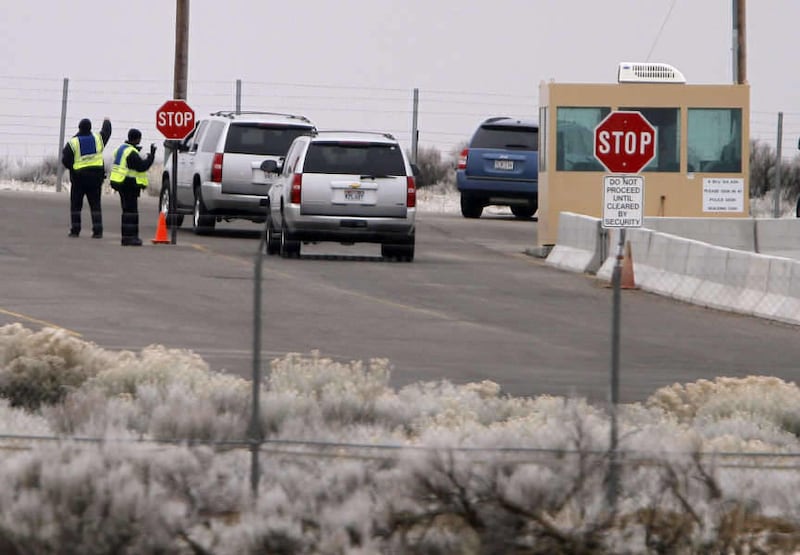SALT LAKE CITY — Deep cuts in the environmental staff at Dugway Proving Ground are raising safety questions, despite assurances from the Army that oversight at the unique base won't suffer.
Critics question how a U.S. Army post the size of Rhode Island, dedicated to test and training operations with dangerous weapons, deadly germs and toxic nerve agents, can be adequately overseen by an environmental staff that’s suddenly 40 percent smaller.
"An erosion of the capabilities of environmental oversight is not a healthy prospect," said Steve Erickson of the Citizen Education Project, an advocacy group that monitors activities on the sprawling military installation in Tooele County.
But Dugway officials say the downsizing was a simple matter of cutting costs.
"The Army can only afford so much, truthfully,” said Audy Snodgrass, garrison manager at the base.
Earlier in the week, Army officials denied that final decisions had been made. But lower level sources at Dugway insisted the staff reductions were happening and Snodgrass later confirmed it. "We currently have 17 people authorized in our environmental division, and we're going down to 10," Snodgrass said.
That's a 41 percent reduction in the staff of scientists whose role is to monitor environmental concerns and assure compliance with state and federal environmental regulations. The cuts come at a time when the Army hopes to expand its activities on the proving ground, many of which are potentially dangerous.
The seven positions being eliminated are held by experts in biology, physical sciences and archaeology. A high-level Army review team concluded there was too much specialization at the base.
"We have to be far more generalist in our approach, so that one person handles two or three missions," Snodgrass said. "The Army can no longer afford specialists. It's as simple as that."
He said the primary reason for the cuts is to save money and be more efficient. In spite of the cost saving cuts, the rest of his staff of 220 that manages the base facilities is actually increasing by 8 to 15 positions. Snodgrass's explanation is that more workers were needed in some areas but fewer in the environmental division.
Erickson finds the environmental cuts at one of the nation's primary sites for testing chemical and biological agents troubling. "That's a cause for some real concern. They have a lot of projects going on out there, more to come. It's one of the busiest times in the history of the base."
The Utah Department of Environmental Quality has a partial oversight role at Dugway on such matters as clean air, clean water and disposal of hazardous waste. Scott Anderson, DEQ's Director of Solid and Hazardous Waste, said he's not worried the Army will back away from environmental responsibilities.
"Over the years as we've worked with Dugway they've demonstrated a commitment to those obligations," Anderson said, "and we continue to expect that will be the case."
Erickson worries that key activities might not get enough oversight. "The contractors who work out there doing various tests for various corporate interests that are defense-related would begin to run the show a bit," Erickson said. "And that's not a healthy prospect."
Snodgrass insists oversight will not suffer. "The Army is very concerned about the environment," he said, "and we will continue to do everything we can to do it right."
E-mail: hollenhorst@desnews.com


